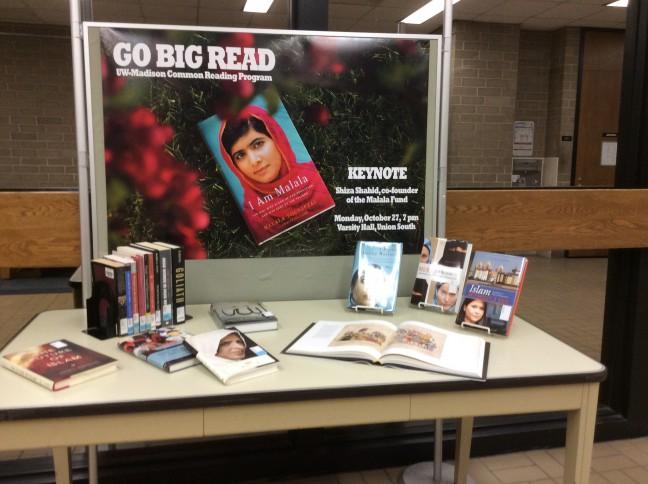Shiza Shahid, cofounder of the Malala Fund, received a standing ovation at the Keynote Go Big Read talk. With a full house, her words inspired hundreds of people to a call for girls’ education across the world. As she began the Q&A portion of the program, an elderly woman approached the microphone and asked something along the lines of, “How are you so fluent in English?” Yes, how could Shiza, a Pakistani-raised Stanford graduate, possibly speak English fluently?
This question baffled me as I reflected on the phenomenal speech Shiza just gave. Why is it that anyone would question a Pakistani woman on her fluency in English while plenty of previous speakers were never questioned? As she brilliantly responded with an explanation on how she grew up speaking English in Pakistan, I couldn’t help but think about my own experience here at University of Wisconsin.
I have often been the only person in a lecture hall with my scarf (also known as the hijab) wrapped around my head. My friends often joke and say it is pretty easy to spot me on the street as I scurry off to my classes. My scarf has often been an object of conversation, often invoking questions about “Where I am really from,” and “How is my English was so fluent.” My answers always shocked people when I said I was from Madison and that my English better be fluent as it was my first language. I would often be frustrated with these types of situations. While my fellow classmates were never questioned on their American identity, I would often struggle to “prove” myself. I would often find myself speaking up in class in order to establish the fact that I knew English. From the confused looks as I grab my Chipotle for lunch or when I wear a hat over my scarf to brace the cold winter, I have had a rollercoaster ride throughout my undergraduate career as I strive to establish my identity.
In the midst of this struggle to explain my identity to the UW campus, the beginning of this semester had a completely different plan for me. This year’s Go Big Read Program, I am Malala, sparked a new conversation. As I walked into College Library on the first day of classes, I saw the bright pink scarf from the cover of the book on the Go Big Read Posters. It was a surprise to see a portrayal of my identity across campus and I was hesitant to see the type of dialogue that would stem from it.
Malala portrays a positive image of Muslim girls who value education, despite the social barriers that they face. Enlightening discussions came from this book; however, misconceptions have also risen to the surface. I feared that, with the increased discussion of Islam in the news, students would continue to have a distorted understanding of Islam. With words like terrorism and oppression being closely tied to Islam in today’s society, I was troubled with the negative narrative that could stem from the conversations being had. For someone with very little previous knowledge, the Taliban’s atrocious acts could easily be confused with the distorted image of Islam the group portrays.
However, I quickly realized that this conversation was key to expanding the horizons of students on campus. These conversations are invaluable, especially when it comes to breaking down barriers. In a time period where Islam is facing a lot of negativity, it’s my sincere hope that dialogue and conversation will help lift these misconceptions.
Naman Siad ([email protected]) is a senior majoring in community and environmental sociology.








